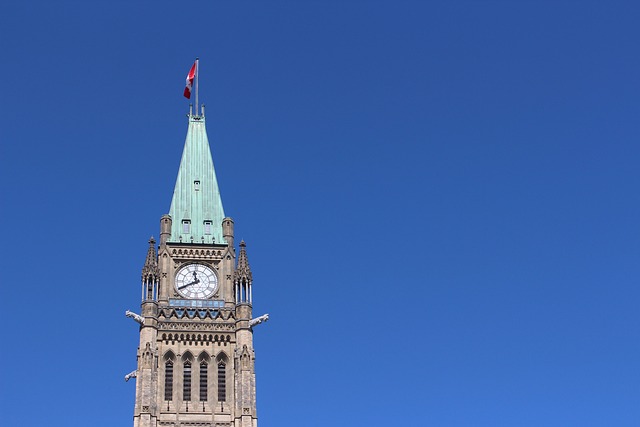by Julia Sanchez and John Sinclair
Canada has just elected a new government committed to ‘putting Canada back on the global stage’ by re-establishing Canada’s leadership position in promoting human rights and ending poverty. This commitment will be put to the test as key moments in the international agenda, all with important domestic ramifications, are before us almost immediately. The new government will have the opportunity to show this renewed leadership at the critical meeting on Climate Change in Paris, in December, itself following on the G20 Summit in Turkey, as well as a Commonwealth Summit, both in November.
Canada is remembered as an actor that used to contribute well above its middle-power weight in development, diplomacy and peacekeeping. Will the new Canadian government become an active player in a re-energised UN?
Change is also in the air at the United Nations. On September 25 in New York we saw the adoption and celebration of Agenda 2030 by well over 100 heads of state and world leaders, including Pope Francis and President Barack Obama. Its substance is encompassed in a complex array of 17 Sustainable Development Goals (SDGs) and 169 targets. The central message of the new agenda, which builds on the successes and shortcomings of the Millennium Development Goals (MDGs), is to ‘leave no one behind’ on the journey to eliminating extreme poverty by 2030.
Agenda 2030 will be challenging, covering as it does social, economic and environmental aspects of sustainability. It embraces much more than a reworked social development agenda, including totally new dimensions such as climate change, decent work, access to justice and peaceful and inclusive societies. So how do we walk-the-talk of this transformational agenda? At the UN a key discussion is focused on being ‘Fit for Purpose’. How might Canada prepare to play a leadership role in this new global setting?
During the recent UN Summit on Sustainable Development adopted Agenda 2030 in New York, and anticipating that there would be change back home, we set out to find some answers to that very question. We held informal interviews, under Chatham House rules, with a number of senior UN officials, all at the forefront of steering the UN on the path of this transformational agenda. We asked them how a new Canadian government might build a stronger relationship with the UN family, to enhance its credibility and play a leadership role in the implementation of the new global agenda.
Our interlocutors saw the UN itself on the cusp of major institutional change. The organization — and especially its specialised agencies — will need to be much more focused on an effective working presence on the ground, with closer working partnerships with governments, civil society and private sector actors, especially in low-income and fragile states.
In this context, they welcomed the possibility that a new Canadian government, for a long time absent from UN leadership, would be keen to build a more supportive partnership with both the UN institutions and other member states. They noted that over the last decade Canada has cut funding for some important UN agencies, and that we failed to support important UN resolutions and programs. Our absence from peacekeeping was particularly regretted.
Despite all that, their sense was that Canada was still remembered as an actor that had contributed well above its middle-power weight in areas such as development, diplomacy and peacekeeping. Their hope was that a new Canadian government would become an active player in a re-energised UN, especially in living up to the ambitions of Agenda 2030.
For Canada to respond we need our own ‘Fit for Purpose’ assessment. Our aid budget has been sharply reduced in recent years. The driving philosophy of our aid program has been far from pro-poor. Our interlocutors recognised that a new, more assertive development co-operation approach will take time to build. But they stressed the need for an ambitious agenda in Canada.
There have been immense changes in the global context over the last decade, which Canada now has to recognise and adapt to. There are new economic players, such as the BRICS, who are increasingly impatient with a world symbolised by a G7 that holds to old leadership ‘privileges’. These UN officials wondered whether Canada would be prepared to be a mediating voice promoting partnerships between a wary North and an impatient Global South. In playing such a mediating role, they suggested we need to recognise that such partnerships will also be crucial on the path to Canada’s own future.
Universality, a central principle of Agenda 2030 — which makes its new Global Goals applicable to both rich and poor countries alike — was essentially rejected by the Harper government. Our interlocutors suggested Canada would do better to follow the lead of major European nations, such as Germany, who are seeing the universal nature of this agenda as an opportunity to reshape their own population’s vision of the world and provide a better understanding of how international and national policies can be complementary.
They specifically saw opportunities for Canada to re-join the community of peacekeepers. It was not an issue of deploying thousands of boots on the ground, but rather the contributing of organizational skills and strengthening rights commitments to presently over-stretched UN efforts.
From a Canadian civil society perspective, there are additional challenges and opportunities in the new Agenda. Our UN interlocutors called for a renewed championing of civil society’s participation in the implementation of Agenda 2030, including enhanced consultation and dialogue with its own civil society at home. They hoped a new Canadian government, working with civil society, could rebuild public support for sustainable development.
Implementation of Agenda 2030 requires re-purposing of the UN. It will reshape the world in which Canada acts economically and politically. Our new government will want to provide political support for these changes. And to do this effectively, it must undergo transformations of its own with respect to how it engages with the world. Enhanced policy coherence and an all-of-government approach to implementing the new agenda need to be part of the process. Is Canada up for the task? Paris will likely be a first chance to walk the talk.
Julia Sanchez is the President of the Canadian Council for International Co-operation. John Sinclair is a regular CIPS contributor and a member of the McLeod Group.










